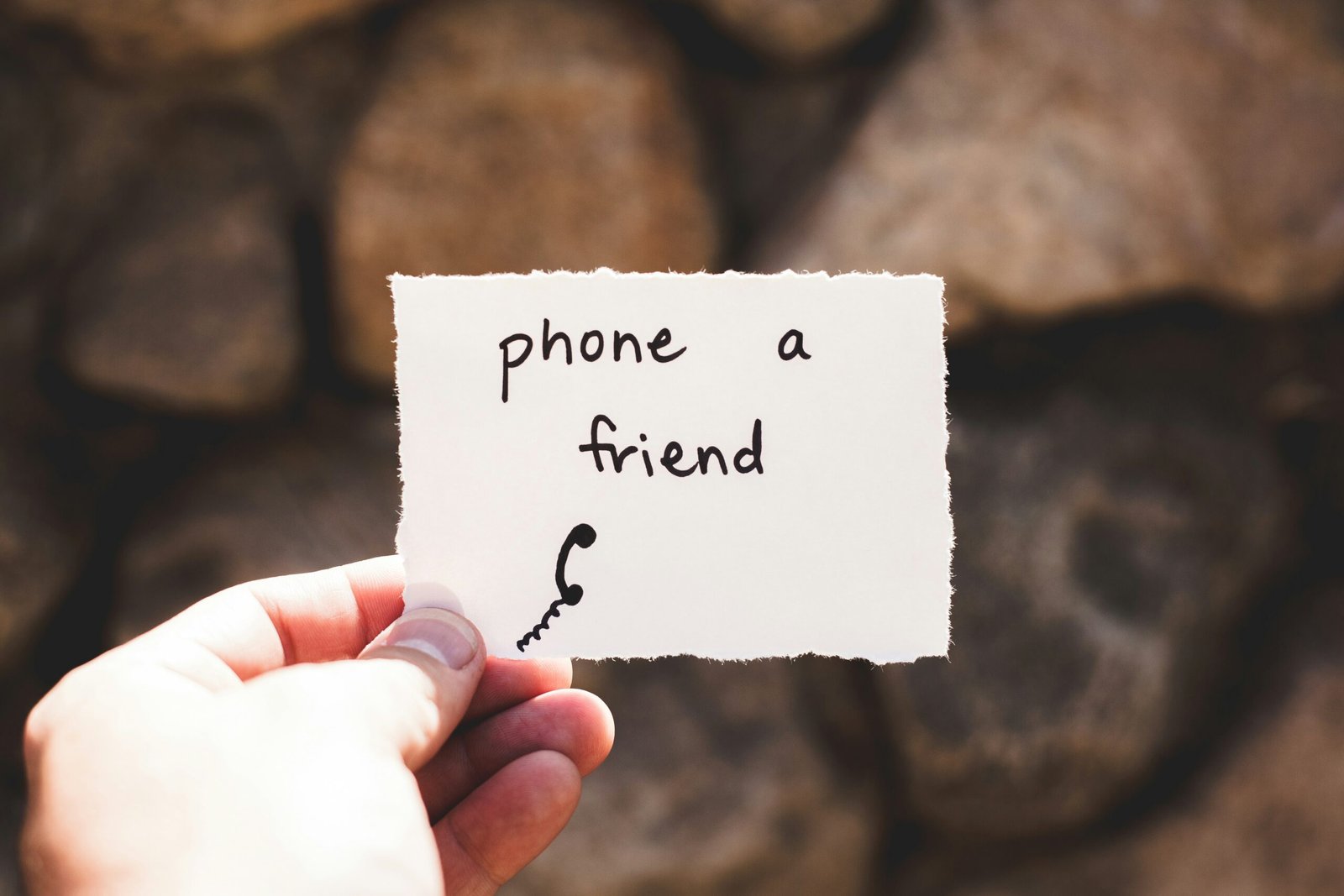Understanding Relationship Counseling
Relationship counseling, often sought by couples experiencing difficulties, encompasses a structured therapeutic approach aimed at improving interpersonal dynamics. The primary goal of this counseling is to foster healthier communication, enhance mutual understanding, and resolve conflicts within the relationship. Couples typically attend sessions with a licensed professional who specializes in relationship dynamics, such as licensed counselors or psychologists. These professionals provide a safe environment for individuals to express their feelings and concerns openly.
A typical counseling session involves guided discussions, where each partner is encouraged to articulate their perspectives and emotions. This dialogue is facilitated by the counselor, who helps to identify underlying issues contributing to relational stress. These sessions may vary in length and frequency, with the duration ranging from a few weeks to several months, depending largely on the couple’s needs and the complexity of their situation.
Various therapeutic methods are employed in relationship counseling, including talk therapy and behavioral techniques. Talk therapy focuses on verbal communication and emotional expression, emphasizing the importance of understanding each partner’s viewpoint. Behavioral techniques, on the other hand, aim to modify specific behaviors that may be detrimental to the relationship. These methods are designed to enable couples to develop healthier interaction patterns, thereby fostering a more supportive and loving environment.
Counselors may also utilize techniques rooted in cognitive-behavioral therapy, which challenge negative thought patterns and behaviors that negatively impact the relationship. The goal is to equip couples with tools to navigate challenges more effectively and to build resilience in their relationship. While seeking ‘relationship counseling near me’ may seem like an ideal solution, it is essential to recognize that not all counseling approaches may be suitable for every couple’s unique circumstances and needs.
[quads id=1]
Common Issues Addressed in Counseling
Couples frequently find themselves seeking counseling as a means to resolve various relational issues that hinder their ability to connect meaningfully. One prevalent issue is communication breakdowns. Couples may struggle to articulate their feelings or may misunderstand each other’s intentions, leading to frustration and conflict. According to research, nearly 70% of couples report that they face challenges in communication, which often exacerbates other problems within the relationship.
Another common issue tackled in counseling is trust. Trust issues may arise from infidelity, dishonesty, or even unfulfilled expectations. When trust is compromised, it can lead to a cycle of suspicion and defensiveness, creating a rift between partners. A study conducted by the American Association for Marriage and Family Therapy indicates that about 25% of couples experience trust-related crises at some point in their relationship, making this a significant concern that counselors often address.
Emotional disconnect further complicates relationships. Many couples may find that they have drifted apart over time, with one or both partners feeling unfulfilled or neglected. This emotional distance can create a pervasive sense of loneliness within the relationship. Interestingly, surveys suggest that emotional disconnection is cited as a primary reason for seeking counseling by 60% of couples. Such disconnection frequently manifests in daily interactions as indifference, lack of support, or a diminished interest in shared activities.
These issues not only impact the dynamics of the relationship but can also lead to individuals feeling misunderstood or isolated. Understanding the prevalence of these concerns helps to set the stage for evaluating the effectiveness of counseling as a means to address and potentially resolve these relational challenges. Throughout the counseling process, couples are encouraged to develop healthier communication patterns, rebuild trust, and reconnect emotionally in order to foster a more resilient relationship.
The Psychological Basis of Counseling
Understanding the psychological principles that underpin relationship counseling is essential for comprehending its methods and expected outcomes. Central to many counseling approaches are concepts such as attachment styles, cognitive behavioral therapy (CBT), and emotional intelligence. Each of these areas plays a significant role in shaping interpersonal relationships and guiding therapeutic practices.
Attachment theory posits that individuals develop specific attachment styles based on their early interactions with caregivers. These styles—secure, anxious, avoidant, and disorganized—affect how people relate to one another in adult relationships. For example, individuals with a secure attachment style tend to exhibit healthier relationship behaviors, while those with anxious or avoidant styles may struggle with intimacy and communication. By identifying and addressing these attachment styles, relationship counseling aims to promote healthier interactions and enhanced emotional connections.
Cognitive behavioral therapy (CBT) serves as another cornerstone of relationship counseling. This therapeutic approach focuses on identifying and modifying distorted thought patterns and behaviors that contribute to relationship distress. By helping individuals recognize and challenge negative thinking patterns, CBT fosters healthier behaviors and enhances communication between partners. The goal is to empower clients with the skills necessary to navigate relationship challenges more effectively.
Emotional intelligence, or the ability to recognize, understand, and manage one’s own emotions as well as those of others, is also critical in relationship counseling. High emotional intelligence facilitates better communication, empathy, and conflict resolution. Counselors often work with clients to develop these skills, enabling them to respond to their partner’s needs more effectively and nurture emotional bonds.
These psychological principles combined illustrate the rationale behind popular counseling methods. While seeking ‘relationship counseling near me’ may seem appealing, it’s essential to understand the theoretical foundations that guide these practices for optimal effectiveness.
The Limitations of Psychology-Based Counseling
Psychology-based counseling, while widely recognized for its potential benefits in addressing relational issues, carries inherent limitations that can impede its effectiveness for some couples. One fundamental drawback lies in the intricacies of communication. Counselling sessions may foster an environment where miscommunication occurs, despite the intention to clarify thoughts and feelings. Couples may find that their messages get lost in translation, resulting in heightened misunderstandings rather than resolution. This can lead to frustration and feelings of being unheard, which counters the primary purpose of seeking help.
Moreover, traditional psychological approaches often emphasize diagnosing and treating symptoms rather than uncovering and addressing underlying emotional wounds. In doing so, counseling may offer only a superficial bandage for deeper emotional concerns. Couples often enter therapy with complex histories, and if counselors focus primarily on behavioral symptoms, they risk neglecting these deeper issues. Hence, without adequate exploration of the underlying factors, couples may leave therapy without resolving persistent tensions or resentments that contribute to their relational struggles.
Additionally, there is a risk of pathologizing what might be considered normal relationship difficulties. Frequent arguments or periods of feeling disconnected can be misconstrued as signs of deeper pathology when they might merely be developmental phases of a relationship. This misunderstanding could lead couples to believe that there is something inherently wrong with their partnership, further complicating their dynamics and causing feelings of helplessness. Thus, while psychology-based counseling can provide significant support, it may not be suitable for every relationship. Each couple’s unique set of characteristics and dynamics necessitates a more tailored approach to effectively navigate their challenges.
Alternative Approaches to Relationship Issues
In the realm of relationship enhancement, couples often seek solutions that extend beyond traditional counseling. Various alternative methods have emerged, offering unique approaches to resolving issues and improving interpersonal dynamics. One of the most effective options is relationship coaching. Unlike counseling, which often delves into past issues, coaching focuses on actionable strategies and forward-thinking solutions. Coaches assist couples in identifying their goals, improving communication skills, and fostering healthier interactions, thus providing a proactive framework for enhancing their relationship.
Workshops specifically designed for couples also serve as valuable resources. These workshops often provide structured environments where partners can learn techniques for effective dialogue, conflict resolution, and emotional intimacy. The benefits of participating in workshops include not only guided learning but also the opportunity to meet other couples facing similar issues. This communal aspect can foster a sense of support and understanding that is sometimes missing from individual therapy sessions.
In addition to coaching and workshops, non-traditional therapies, such as art and experiential therapies, offer innovative ways to explore relationship dynamics. Art therapy allows individuals and couples to express emotions and communicate through creative means, often uncovering underlying issues that may be difficult to articulate verbally. Experiential therapies, such as outdoor retreats or adventure activities, provide couples with the chance to cultivate trust and cooperation in an engaging setting. These alternative methods can enhance personal growth and relationship satisfaction, allowing couples to bond in ways that traditional counseling may not facilitate.
Overall, exploring these alternative approaches allows couples to consider diverse avenues for relationship improvement. With the right support and resources, partners can embark on a journey towards a more fulfilled union that goes beyond conventional modalities.
The Importance of Individual Readiness and Compatibility
When considering relationship counseling, individual readiness and compatibility between partners play crucial roles in determining the effectiveness of the therapeutic process. Each partner must arrive at counseling with a genuine willingness to participate in the process. This readiness involves an openness to explore underlying issues, confront personal behaviors, and engage with one another more deeply. Without this individual enthusiasm and commitment, the counseling may be less impactful, and unresolved tensions could persist.
Moreover, the emotional states of each partner can significantly influence the counseling experience. Partners who are overwhelmed by stress or are experiencing recent personal traumas may find it difficult to fully engage in therapy. These emotional burdens can create barriers to honest communication, undermining the potential for constructive dialogue. For relationship counseling to succeed, partners must be in a stable enough emotional state to openly discuss their issues and feelings.
Additionally, mutual commitment plays a vital role. Both individuals must share a willingness to work towards common goals, suggesting that counseling can only be effective when both partners are equally invested in the process. If one partner is skeptical or only attending to appease the other, the overall dynamic can lead to frustration and minimal progress in therapy sessions. Furthermore, compatibility with the counselor’s approach can either facilitate or hinder the counseling experience. Different therapists employ varying techniques, and partners must find a counselor whose style aligns with their needs and preferences. A mismatch in therapeutic approaches can lead to a lack of trust and disengagement.
In essence, relationship counseling is most effective when both partners are ready to engage, are in favorable emotional states, are mutually committed, and find compatibility with their counselor. These factors collectively contribute to the potential success of the counseling process.
When Counseling Might Be Beneficial
Relationship counseling can serve as a valuable resource for couples navigating complex emotional landscapes or significant transitions. It is particularly advantageous in scenarios where one or both partners may be facing major life changes, such as the birth of a child, a career shift, or relocation. These transitions can introduce stressors that strain relational dynamics, making it essential for couples to seek external support to better understand and manage their evolving situations. Expert guidance can facilitate open communication and provide tools to cope with changes in a constructive manner.
Another important context where counseling may be beneficial is when couples are dealing with unresolved trauma. Past experiences, whether individual or shared, can affect how partners relate to each other. Counseling offers a safe space for both partners to explore these issues in depth, helping to break patterns of behavior that inhibit healthy interactions. By processing past traumas together under the supervision of a trained professional, couples can learn to rebuild trust and foster emotional intimacy.
Additionally, counseling may be vital for couples experiencing repeated conflicts or dissatisfaction. If arguments become frequent and the issues unresolved, it may signal underlying problems that require professional expertise to address effectively. In these cases, a counselor can help identify recurring themes or triggers in disputes, equipping partners with strategies to handle disagreements more productively. Furthermore, counseling can facilitate a deeper understanding of each partner’s needs and desires, encouraging empathetic dialogue.
It is important to note that while counseling can be particularly helpful in these situations, it is not a one-size-fits-all solution. Each relationship is unique, and couples should assess their specific circumstances and needs when considering professional help. Exploring counseling options may ultimately lead to healthier connections and a more fulfilling relationship.
Additional Resources for Couples
While traditional relationship counseling can be beneficial for many couples, it is essential to consider alternative resources that may complement or serve as a more suitable option for relationship enhancement. Numerous self-help books are available that delve into various aspects of relationships, offering valuable insights and practical strategies for improvement. Notable titles might include works by renowned authors who specialize in interpersonal dynamics, communication, and conflict resolution.
Additionally, online courses on relationship skills have gained popularity in recent years. These interactive platforms provide couples with the flexibility to learn at their own pace and often cover critical topics such as effective communication, emotional intimacy, and trust rebuilding. Many of these courses incorporate video lectures, quizzes, and community discussions, allowing couples to engage actively in their learning process.
Podcasts have also emerged as a versatile resource for couples seeking advice and inspiration. Various shows focus on different facets of relationships, featuring expert guests who discuss practical tools and real-life experiences. Listening to podcasts can be a convenient way for couples to explore new ideas and strategies while commuting or relaxing at home.
Moreover, community forums provide a platform for couples to connect with others experiencing similar challenges. These online spaces foster discussions where participants can share their experiences, seek advice, and gain support from individuals who understand their situations. Engaging in these forums allows couples to learn from one another and discover creative ways to navigate their relationships.
Exploring these additional resources can empower couples to take charge of their relationship growth. While ‘relationship counseling near me’ might not be the right solution for everyone, integrating self-help tools, online courses, podcasts, and community support can create a well-rounded approach to strengthening their bond.
Conclusion: Finding the Right Path for Your Relationship
In considering the question of whether ‘relationship counseling near me’ is the most suitable choice for addressing relationship challenges, it is imperative to reflect on the intricacies of each couple’s unique situation. Throughout this article, we have explored various aspects of relationship counseling and alternative methods, emphasizing the need for a careful and balanced evaluation of both options.
On one hand, traditional counseling can offer structured support and guidance from trained professionals, potentially facilitating open communication and deeper understanding between partners. However, the experience of counseling may not resonate with every couple. Some may find that they are not compatible with conventional therapy methods or that geographical proximity to quality services limits their options. Therefore, it becomes critical to recognize the individuality of each relationship and the specific dynamics at play.
Alternatives to traditional counseling, such as self-help resources, workshops, and peer support groups, may serve as viable paths for some couples. These approaches can provide flexibility and tailored experiences that meet the needs of partners who prefer a more personalized approach. Moreover, engaging in open dialogue and exploring each other’s perspectives can also significantly contribute to resolving conflicts.
Ultimately, the decision about how to tackle relationship challenges should stem from a thoughtful assessment of the strengths and weaknesses of both counseling methods and alternative strategies. It is essential for couples to engage in self-reflection and honest communication about their needs, goals, and preferences. By carefully considering the options and seeking the most appropriate approach, partners can effectively navigate their relationship struggles and foster a healthier, more fulfilling connection moving forward.


